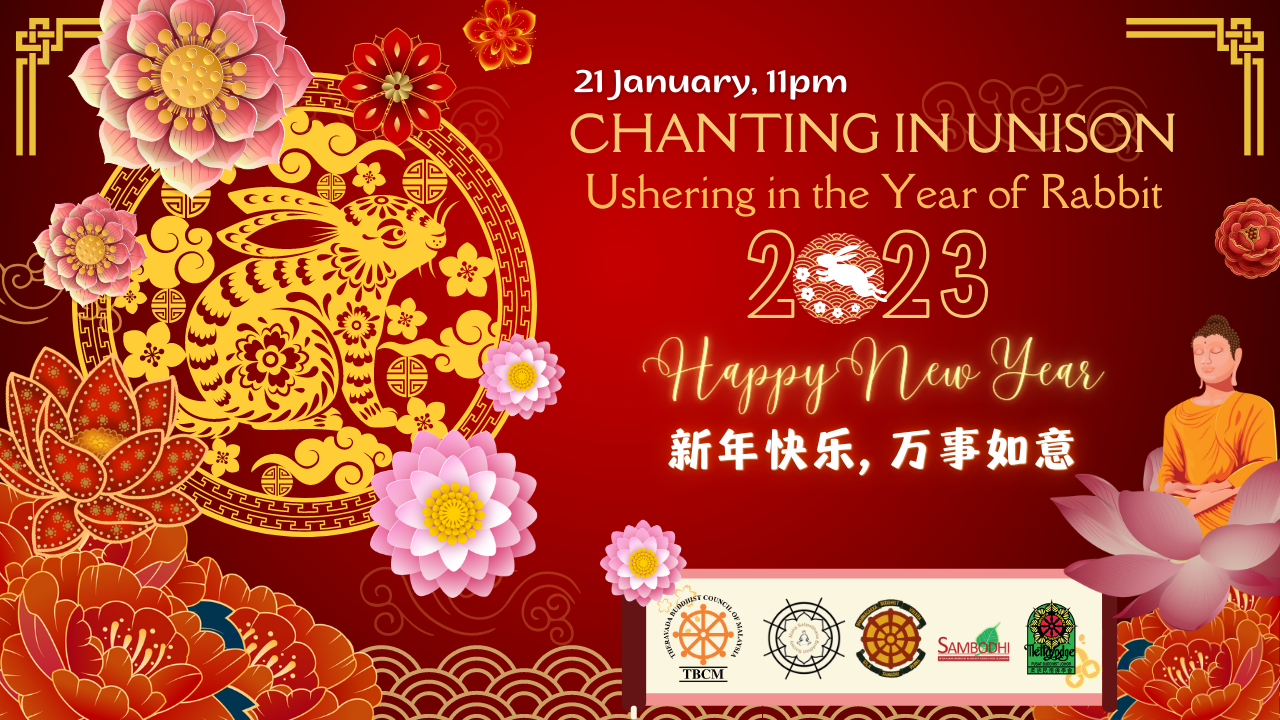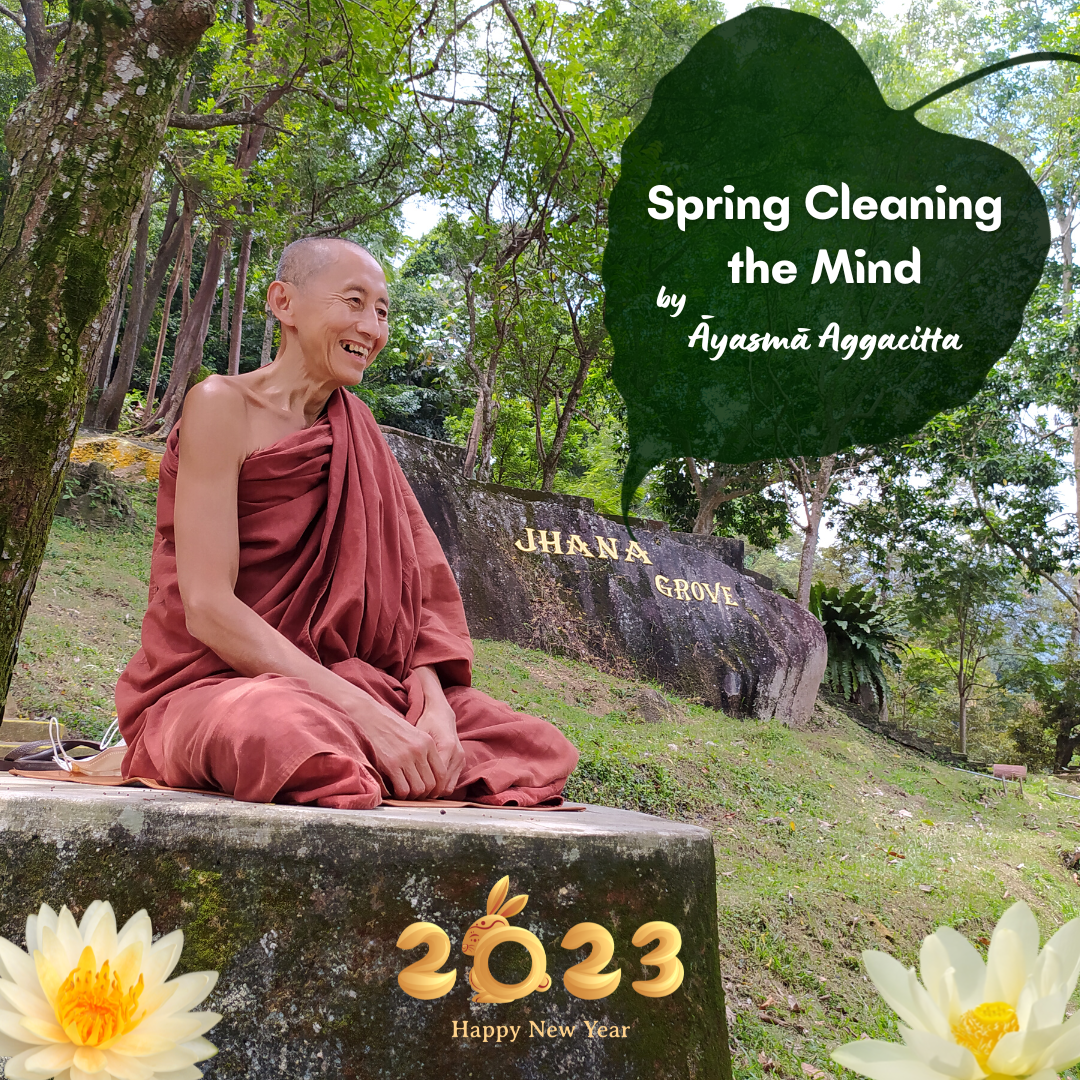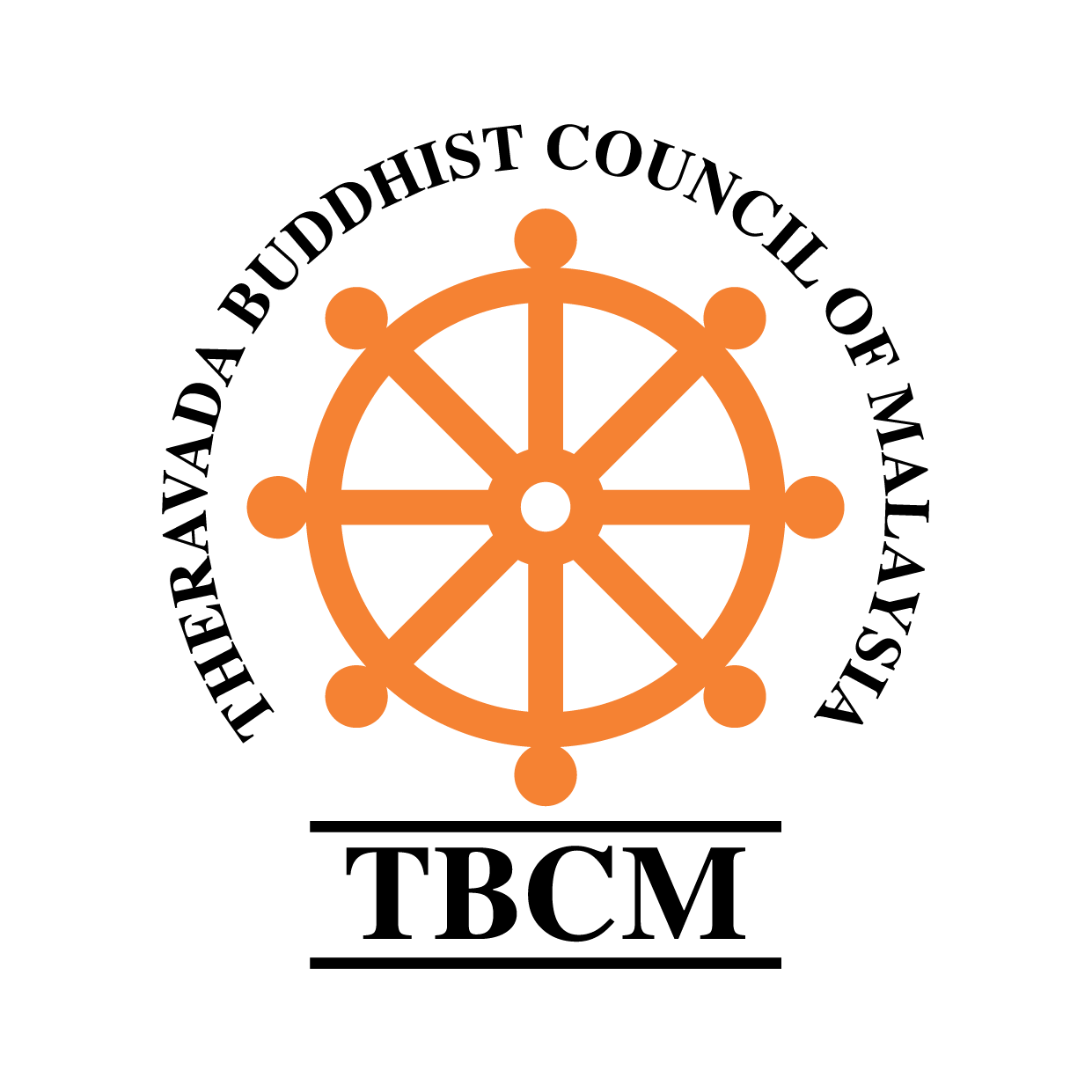Theravada Buddhist Council of Malaysia


Penang Wesak Celebration 2024
The Wesak Celebration will be launched officially on 18th of May (Saturday), 7pm at Wisma Malaysian Buddhist Association.
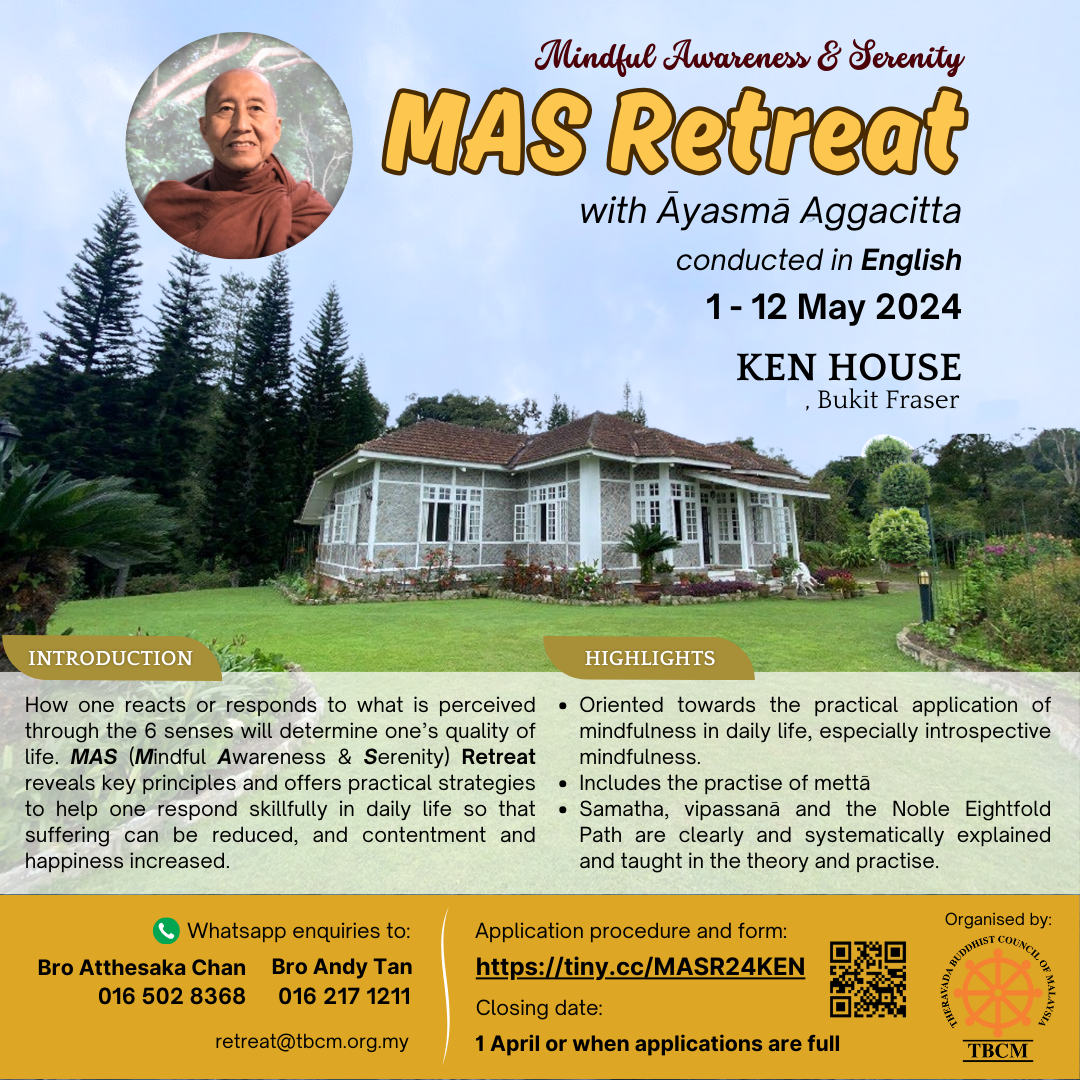
Mindfulness Awareness & Serenity Retreat (MASR) at Fraser Hill
Fraser Hill Mindfulness Awareness & Serenity Retreat (MASR) registration link https://tiny.cc/MASR24KEN
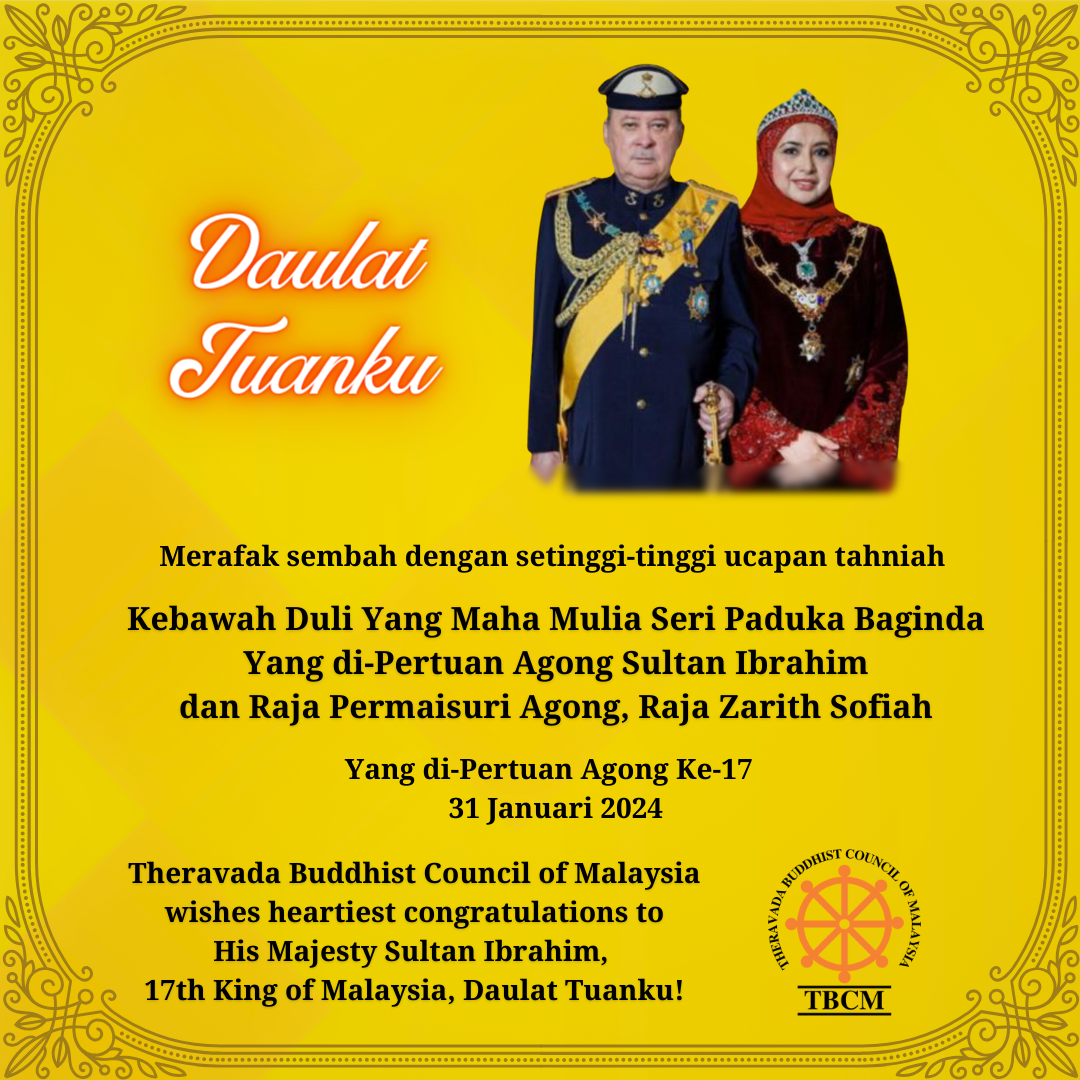
Daulat Tuanku Yang di-Pertuan Agong Ke-17 Sultan Ibrahim
Merafak sembah dengan setinggi-tinggi ucapan tahniah
Kebawah Duli Yang Maha Mulia Seri Paduka Baginda
Yang di-Pertuan Agong Sultan Ibrahim
dan Raja Permaisuri Agong, Raja Zarith Sofiah
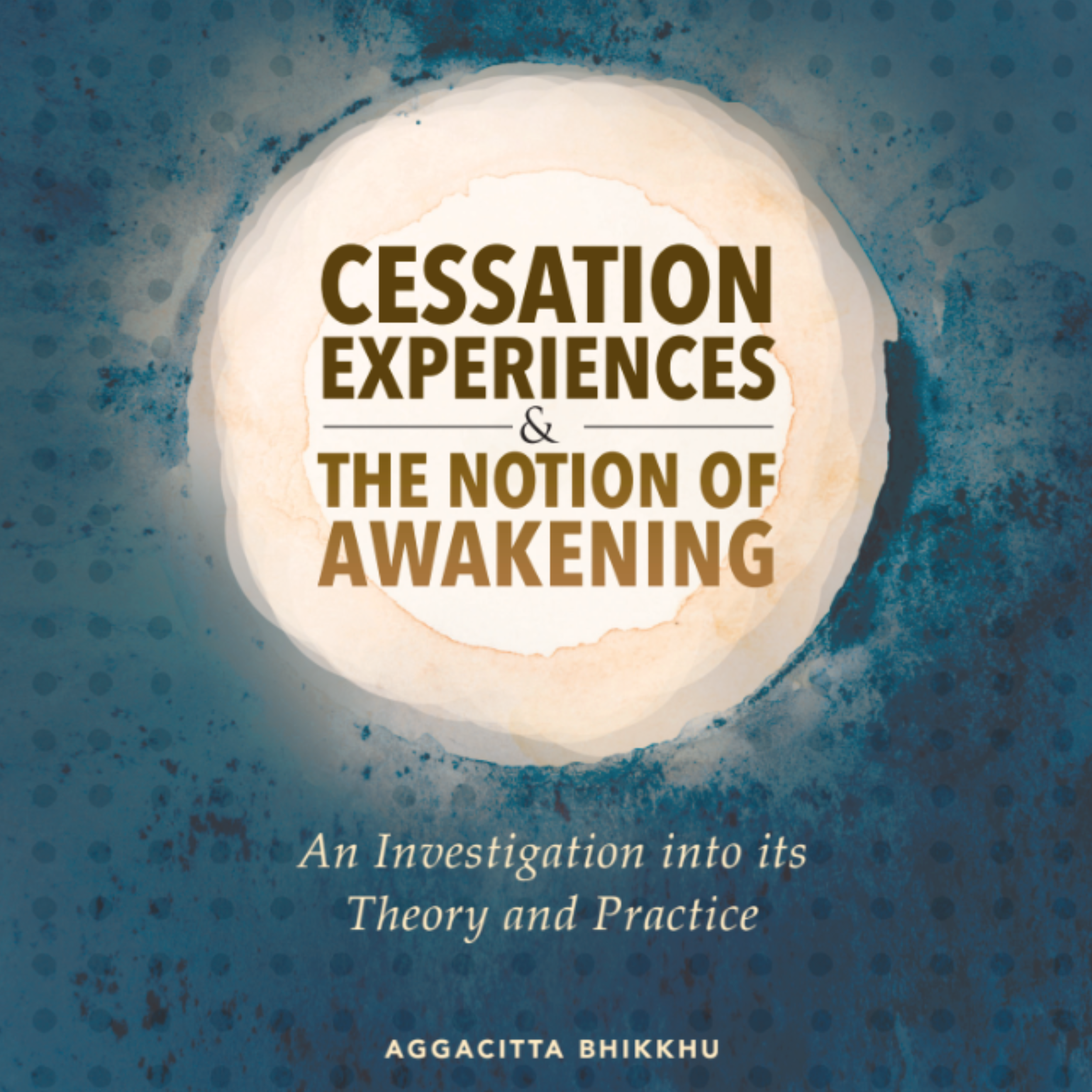
CESSATION EXPERIENCES & THE NOTION OF AWAKENING eBook (updated Jan2024)
In 1994 while I was staying in Shwe Taungong Paṇḍitārāma, Yangon, I wrote an article in answer to a question posed by a Malaysian nun, Sister Vivekanandī, who was then meditating there. It was later published in 1995 as a booklet by Buddhist Wisdom Centre, Petaling Jaya, Malaysia, entitled Cessation Experiences and the Notion of Enlightenment: Tentative Findings of a Preliminary Research.
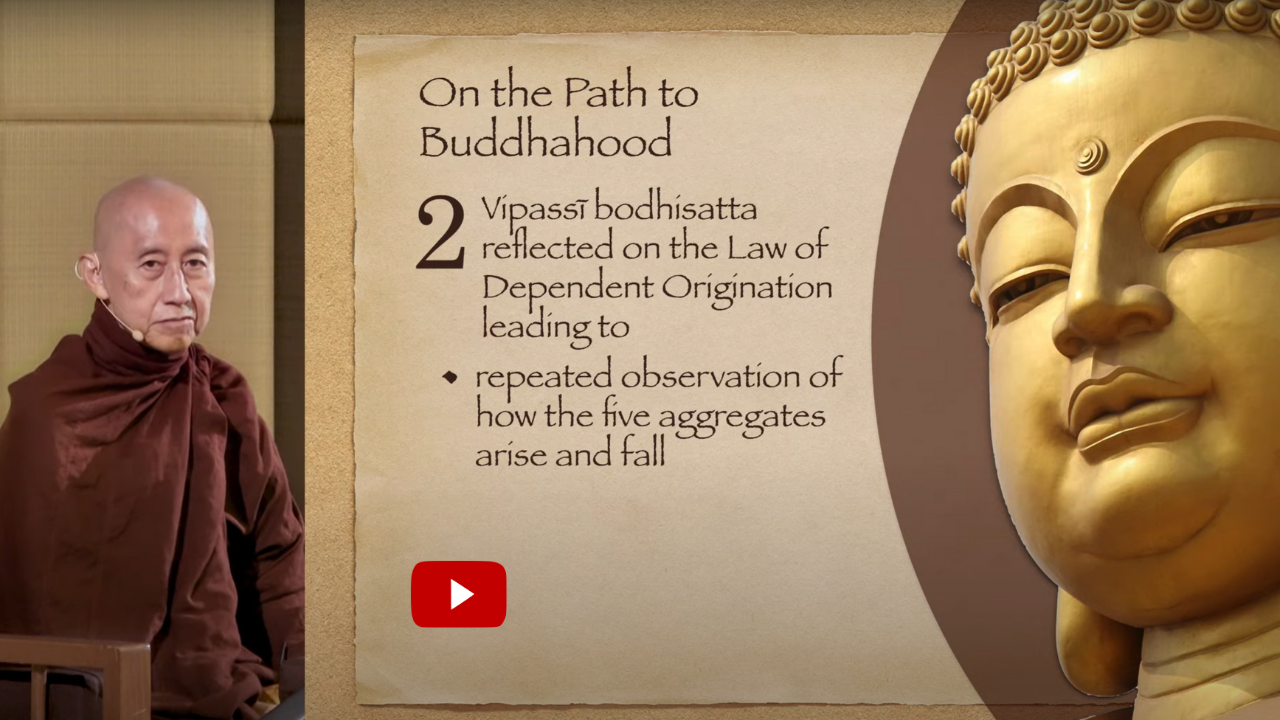
Gotama path to Buddhahood
Āyasmā Aggacitta cites passages from the Pāli suttas to highlight several misconceptions about Gotama's search for awakening and the nature of the jhānas and āruppas. As usual his well structured arguments are solidly based on the Pāli suttas and practical experience, with significant impact on Dhamma practice.
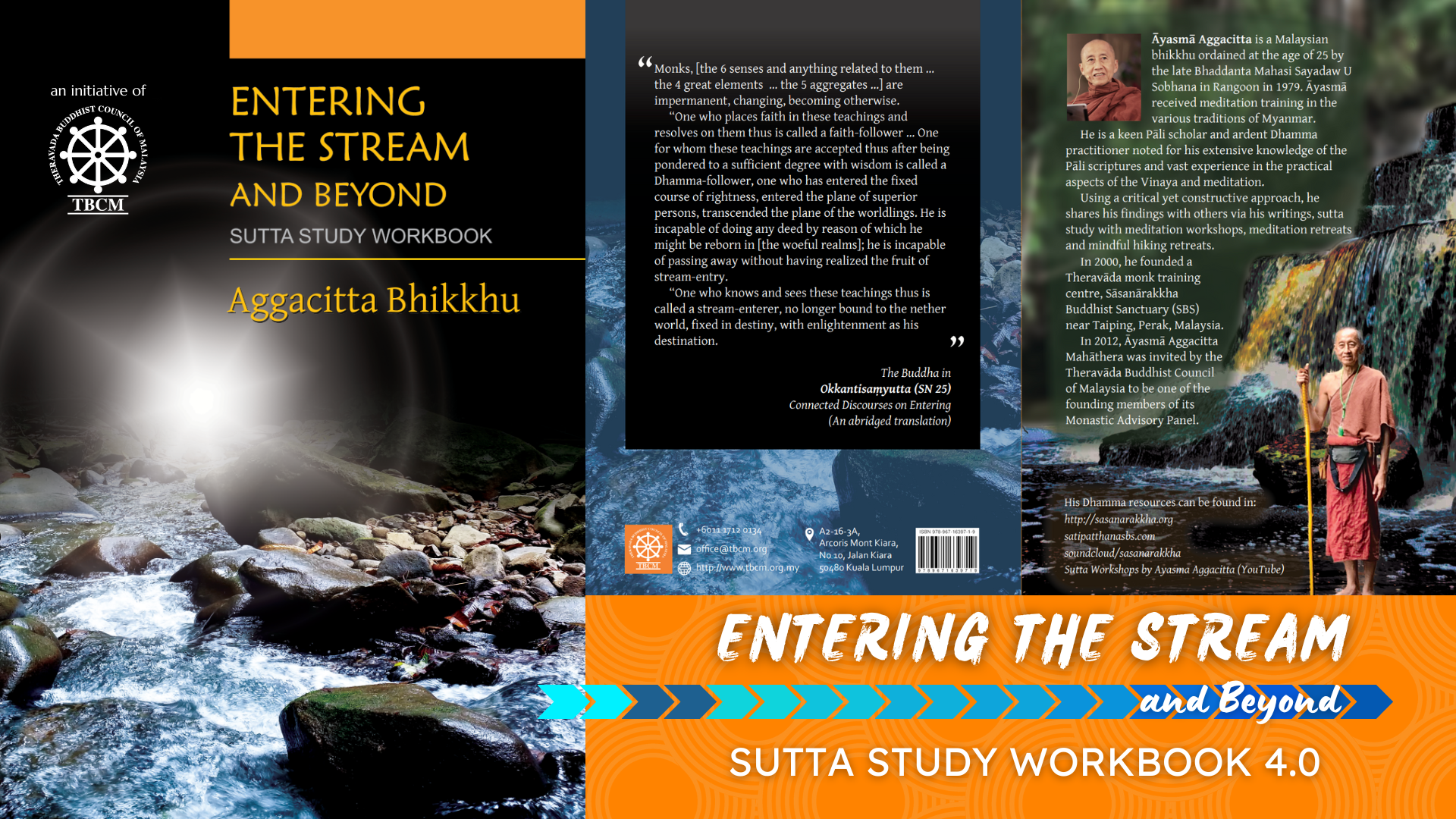
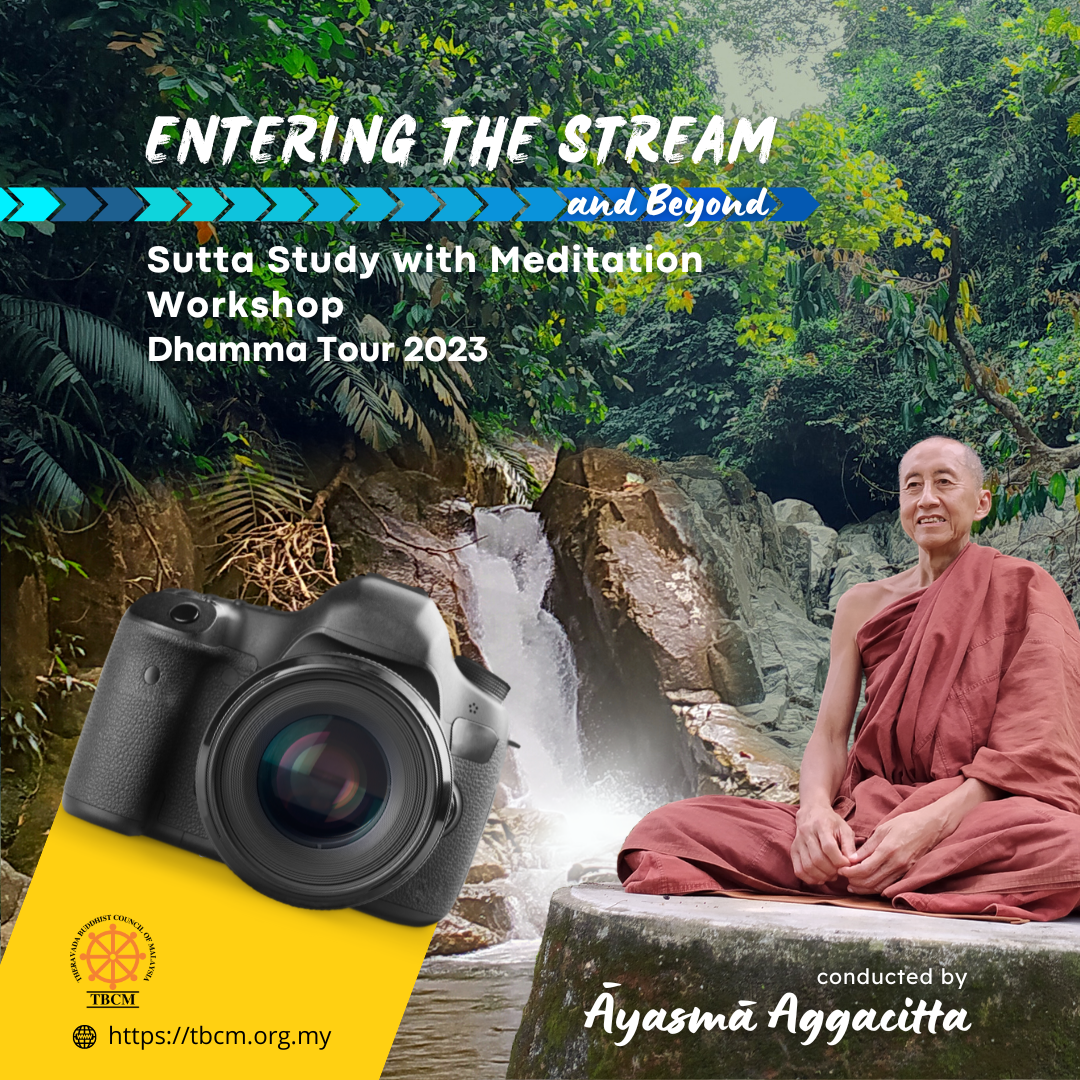
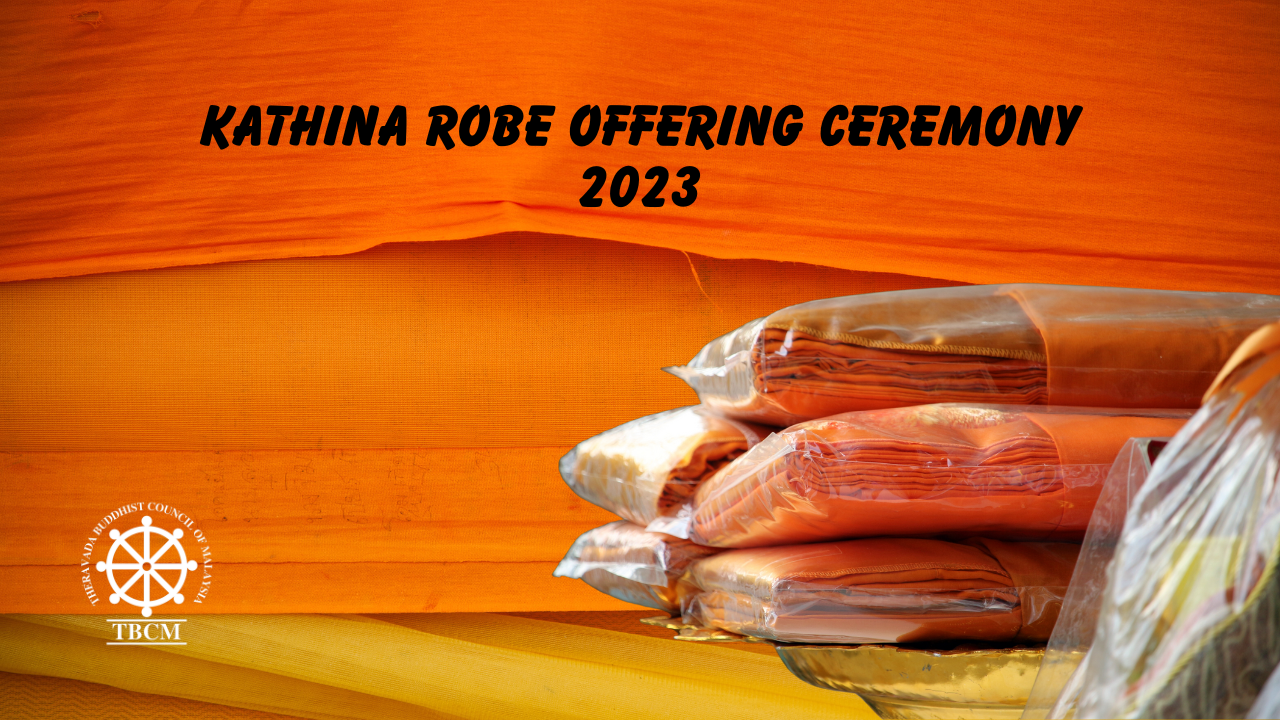
Kathina robe offering ceremony 2023
List of Temples or Societies (Malaysia) holding Kathina in 2023
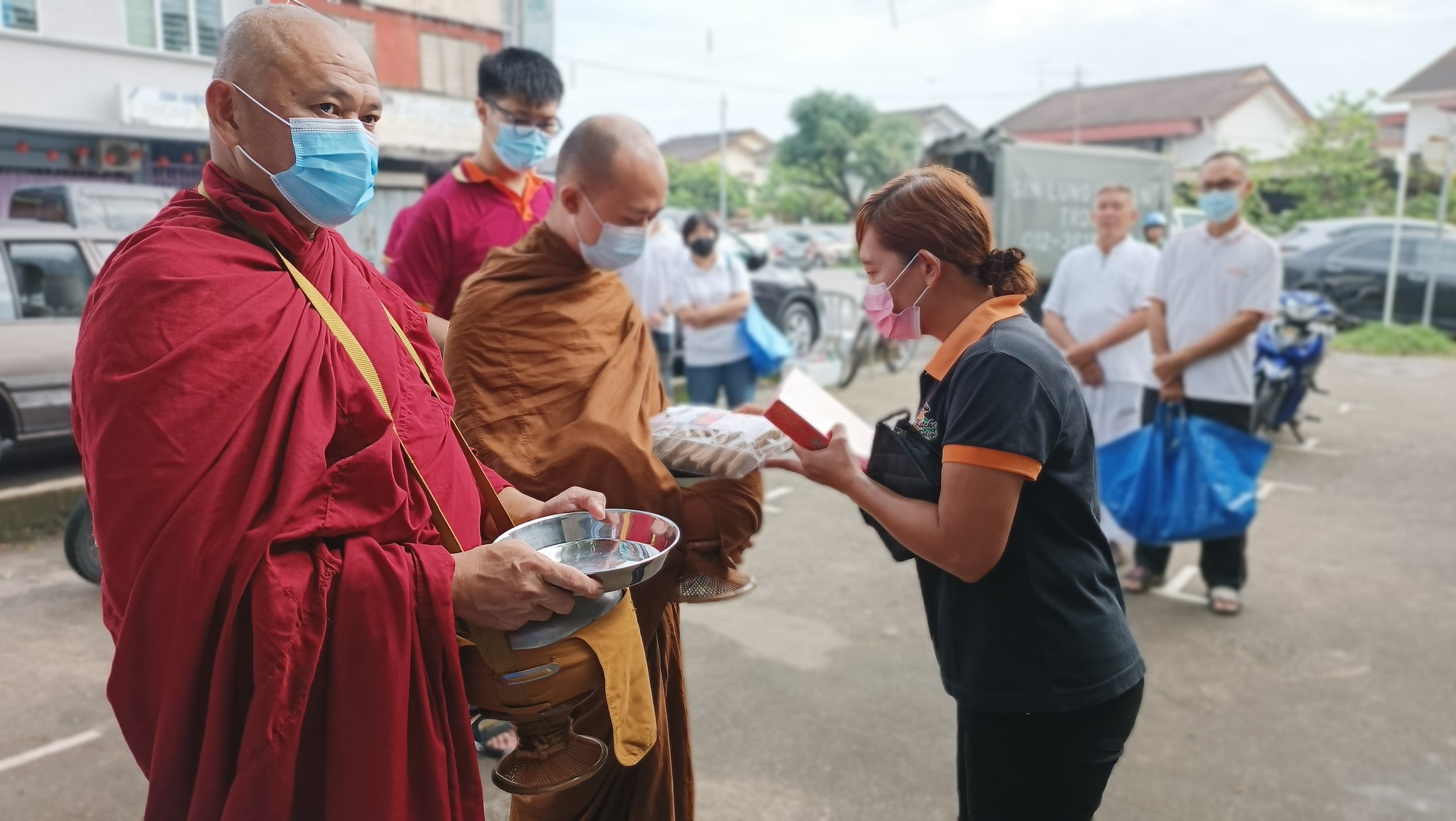
What is Pindacāra?
Pindacāra, the practice of collecting alms-food, is observed by Theravada Buddhist monks who have gone forth from ‘home-life’ to ‘homelessness’. A Buddhist monk is known in Pāli Language as a ‘bhikkhu’ – meaning ‘one who lives on alms’.
In Buddhist countries such as Thailand and Myanmar, it is a daily ritual for monks to go onPindacāra, where they walk through a village from one household to another, allowing devotees to make food offerings.


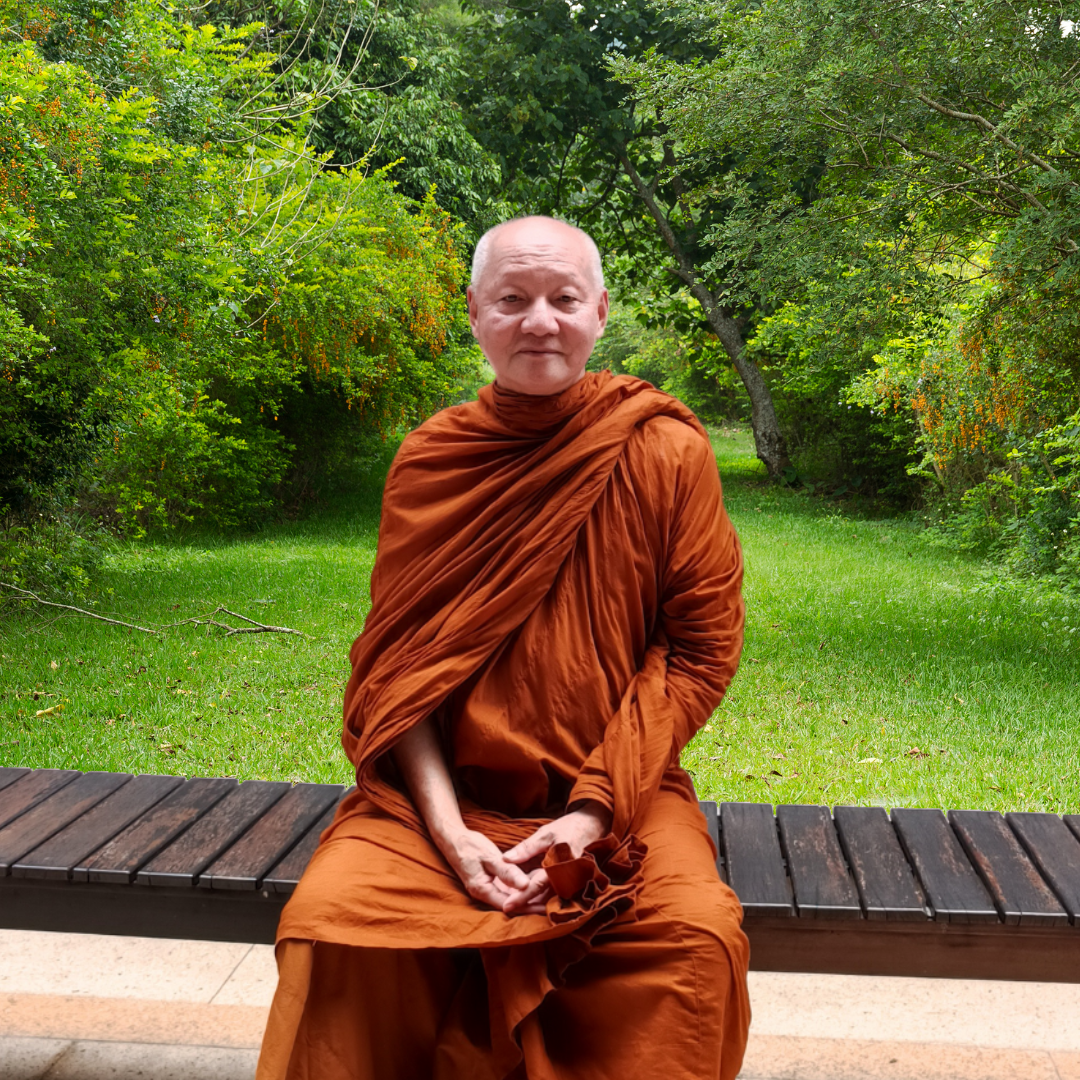

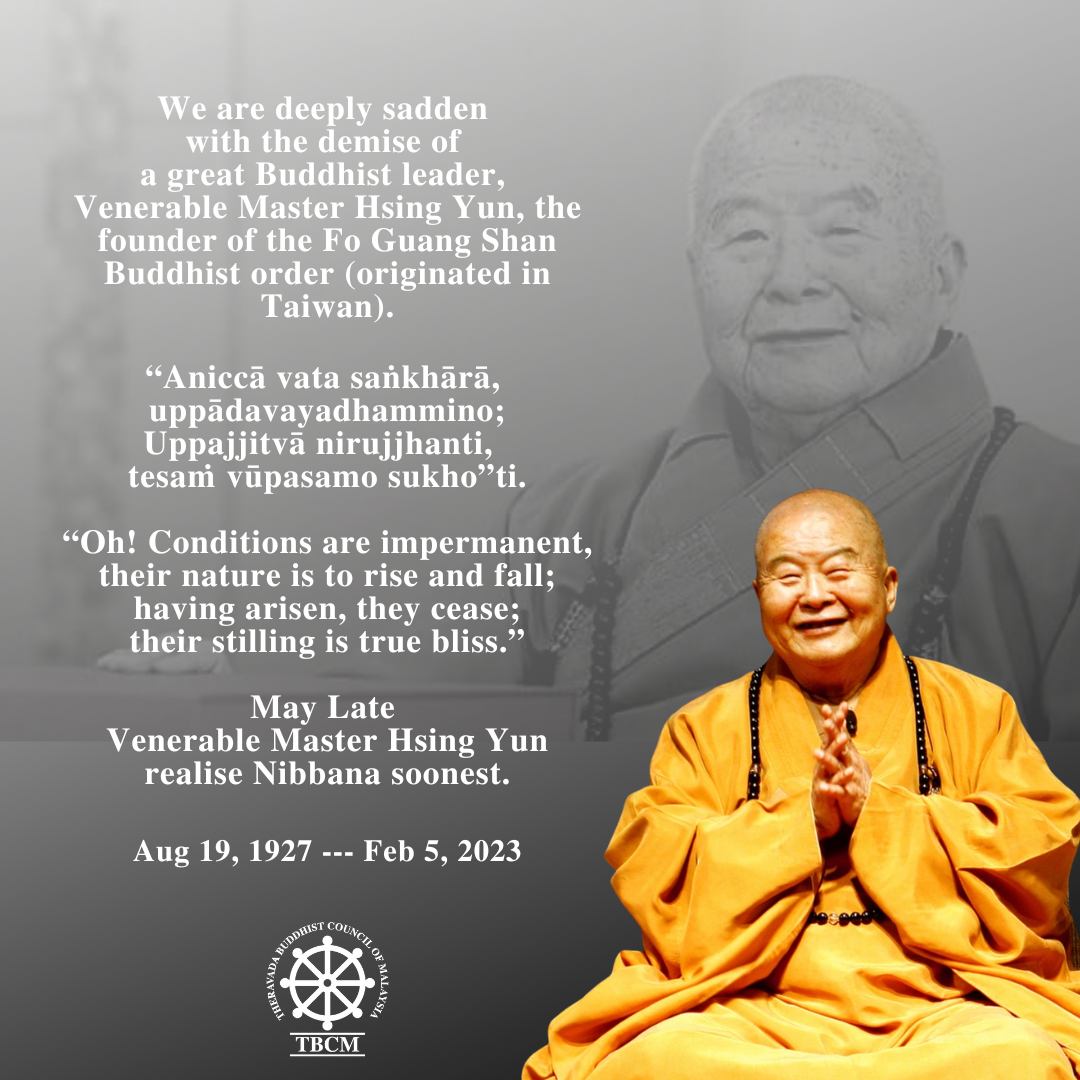
Late Venerable Master Hsing Yun
Aniccā vata saṅkhārā,
uppādavayadhammino;
Uppajjitvā nirujjhanti,
tesaṁ vūpasamo sukho”ti
